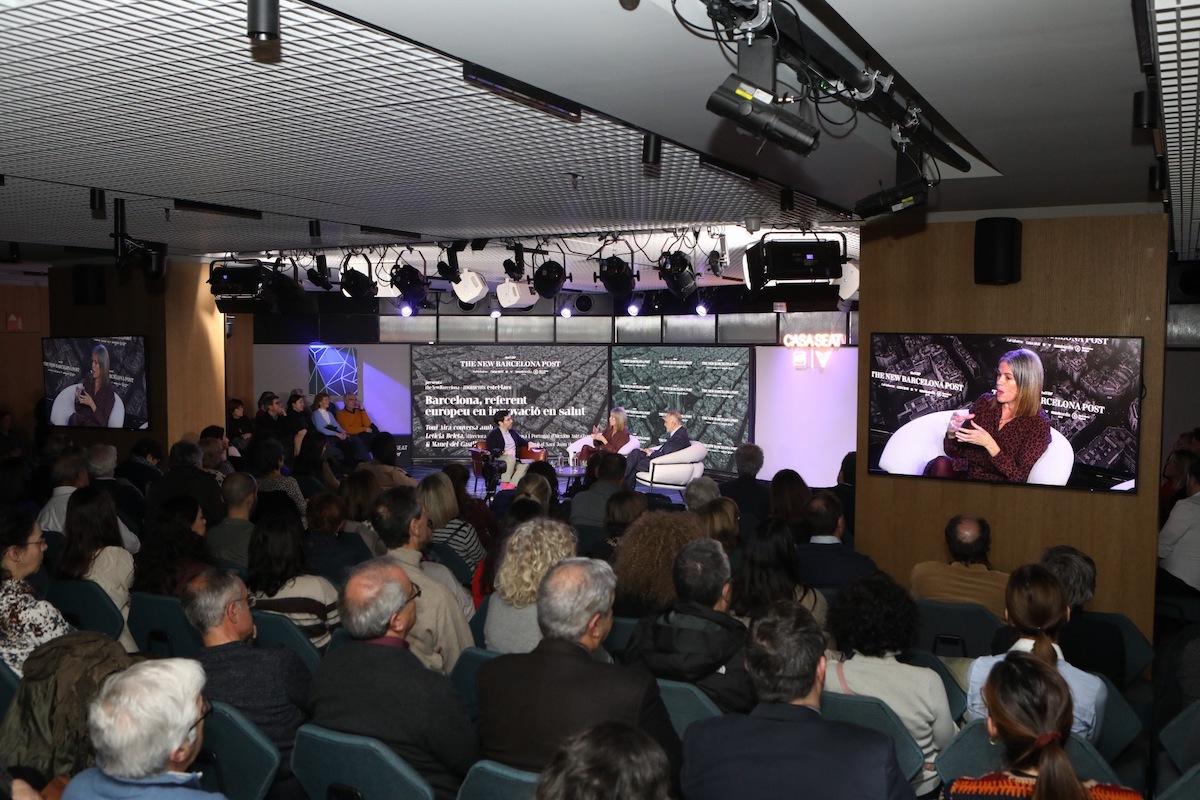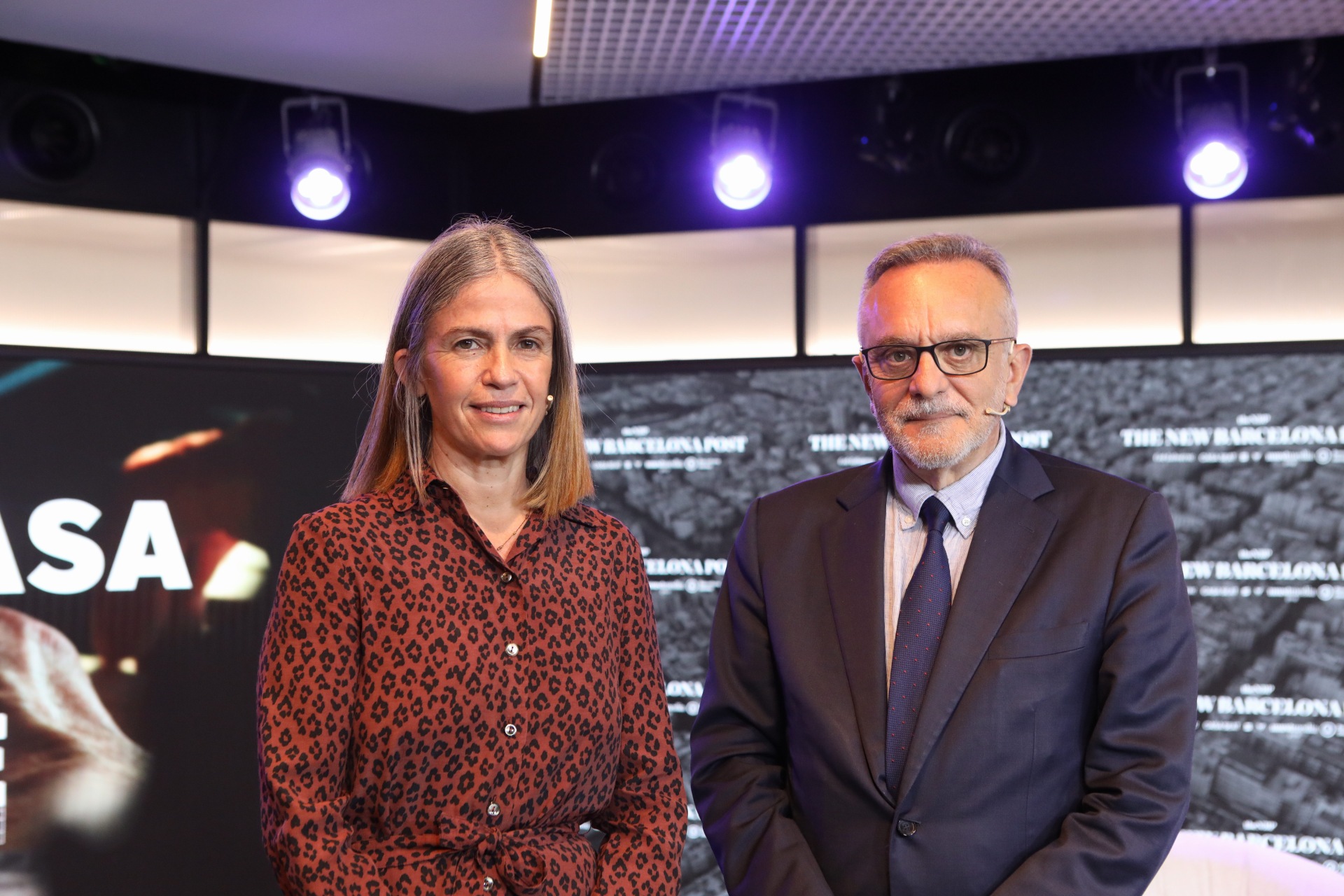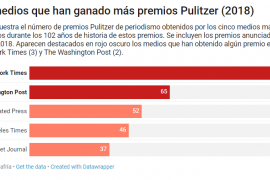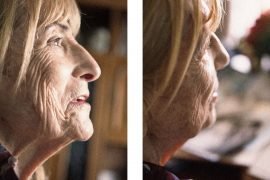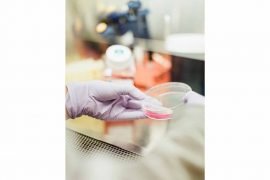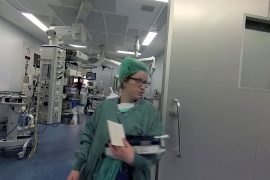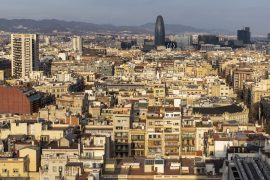Collaboration is key in the healthcare field, especially when it comes to rare diseases. “The big issue for the minority companies is to collaborate,” said the managing director of the Sant Joan de Déu HospitalDr. Manel del Castillo. This collaboration should result in improved diagnostic tests and data processing in the healthcare system, has addedthe director of the pharmaceutical company Alexion in Spain and Portugal, Leticia Beleta, in a new session of the cycle The New Barcelona – Moments Estel-larsorganized by The New Barcelona Post with the collaboration of CASA SEAT, Must Media Group and Barcelona Global.
In a room overflowing with attendees and in conversation with journalist and UPF-BSM professor Toni Aira, both highlighted the research being carried out in Barcelona in the field of rare diseases. “Rare, but not invisible,” said the managing director of the hospital that is a reference in pediatrics in general, and in pediatric oncology and rare diseases in particular. “They are rare separately but, when taken together, they are the group of pathologies in Spain that affects the largest number of people.”to nearly three million, 350,000 in Catalonia. In total, there are some 7,000 minority diseases, and Sant Joan de Déu plays a leading role at the national and European level in this field. Under his leadership, he coordinates the Únicas project, which includes 30 hospitals.
The importance of the “big N“
The Hospital Sant Joan de Déu has an advantage in view of the difficulty involved in the fact that each of the minority diseases affects only a small number of people. Hospital Sant Joan de Déu is the health center that treats the most children with rare diseases in Europe, with more than 28,000 active patients with 1,300 different pathologies. “We have a large N. The N is the number of cases and, in order to be able to investigate, you need a critical mass, a minimum number of people that gives you expertise” explainsDel Castillo, who has more than 35 years’ experience in hospital management.
To further expand this N,the hospital coordinates Únicas, a “highly disruptive and ambitious” project that brings together a working ecosystem involving a total of 30 Spanish hospitals. This “unique and pioneering initiative in Europe” aims to create and consolidate a “comprehensive care model” that guarantees specialized and multidisciplinary care for pediatric patients with rare diseases. To this end, Únicas promotes federated database to share knowledge and improve diagnostics and therapies. It has financing of 46 million euros linked to the Next Generation, as Del Castillo explained. It is within this project that the recently launched alliance that the Hospital Sant Joan de Déu has forged with the La Caixa Foundation, which, over the next three years, will provide 7.5 million euros to the hospital to support research into these diseases.which, over the next three years, will contribute 7.5 million euros to the hospital to support its research into these diseases.
The Únicas project will operate from a new building that the hospital will have in the area under development, which will be Porta Diagonal. Del Castillo has announced that on February 29 the first stone will be laid for the building, which will house all the necessary equipment to provide care, diagnosis and therapy services for these diseases.. The new property will have 15,000 square meters, designed as a center for personalized precision medicine. To materialize it, Sant Joan de Déu counts on public funding and donations, with which it seeks to finance the project. In the area, the hospital will have this and another building, which it will lease from the City Council. This future Porta Diagonal, in Esplugues de Llobregat, aspires to become an important hubin the healthcare and scientific field that attracts startups and companies in the sector.
An ecosystem with textile germ
This hub will join a powerful ecosystem that is being forged in Barcelona and its surroundings in the health and life sciences sector. In this area, Beleta praised the legacy of an unexpected player: the Catalan textile industry. The knowledge generated around chemistry for its processes and dyes made it easier for multinationals to bet on Barcelona to locate production centers and factories. “We have a certain debt with this sector,” said Beleta, who added to the equation the importance of companies owned by Catalan families that have bet on the pharmaceutical sector, among which he has mentioned the promoters of laboratories such as Esteve, Uriach, Almirall, Grifols and Hipra.
This pharmaceutical tradition was the breeding ground for the current ecosystem of the health and life sciences field. It has some 1,400 companies in Catalonia, as Beleta explained, citing a study published a few hours earlier by Biocat. It was mainly because of this ecosystem that Alexion set up its subsidiary for Spain and Portugal in Barcelona 15 years ago. It was also the reason why AstraZeneca, which acquired Alexion in 2021, has opened its Barcelona-based hub R&Dwhich will move to the Estel Building in 2025. This ecosystem, the contact with hospitals and “the seeds of research that were already there meant that, among all the possible candidates, Barcelona was chosen,” said Beleta. AstraZeneca’s new hub has 500 employees and plans to double its workforce in the coming years.It will do so by making use of its “great capacity to attract talent, as there are already 33 nationalities sitting in the office”.
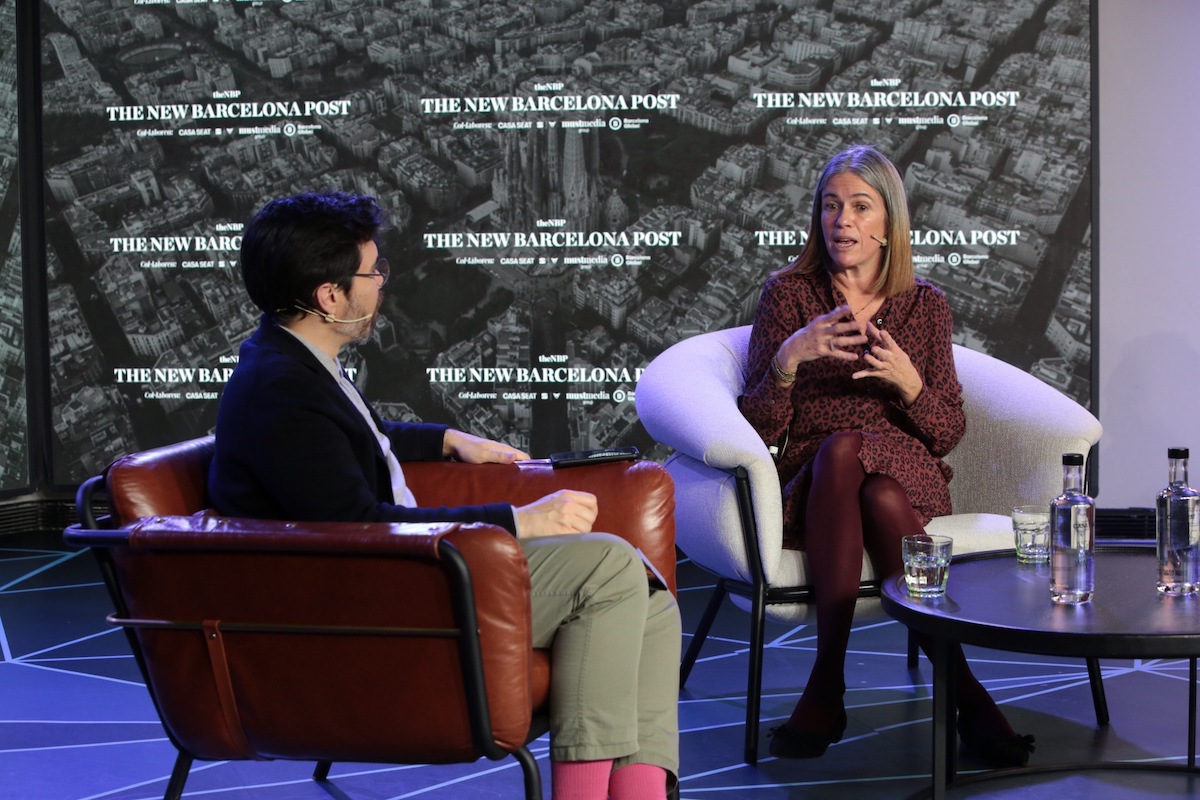
She also stressed the importance of having a strong network of hospitals, research centers and universities, Beleta also praised the role of agents linked to the economic sphere. “We have business schools and venture capital firms. We have all the pieces of the chain: research, financing, hospitals, universities, investment, and both public and private organizations that help us move forward,” added the Alexion director, who has more than two decades in the pharmaceutical sector and has been vice-president of the Spanish Association of Orphan and Ultra-Orphan Drug Laboratories (AELMHU).
Hospital Sant Joan de Déu is the health center that treats the most children with minority diseases in Europe, with more than 28,000 active patients with 1,300 different pathologies.
“Barcelona is a pioneer in addressing many of the challenges of rare diseases,” proclaimed Beleta. And, from this leading edge condition, has called for expanding not only collaboration, but also for improving tests such as neonatal screening. Known as the heel prick testthe newborn’s heel prick allows the diagnosis of multiple diseases through a simple prick in the heel of a newborn. The number of diseases detected by the test differs between autonomous communities, ranging from seven to about 40 diseases -in Catalonia, 25-. “We need to continue coordinating to include more pathologies.” Del Castillo shared this claim, and warned that “if you don’t have a diagnosis, you have no prognosis, you don’t know what is going to happen to your child”.
Precisely the difficulty in diagnosis is another of the characteristics of rare diseases. In fact, Del Castillo pointed out that 50% of the people affected by these diseases do not have a diagnosis “with a surname”, and 95% of them do not have a specific treatment. Beleta added that it takes an average of four years for patients to obtain a proper diagnosis, and that some patients will die without knowing their condition. This reality affects the families of patients beyond the disease itself, and many choose to move to the city where their child is being treated. “Families are our driving force. Mothers are true forces of nature,” and they also fight to promote research and raise funds. According to Del Castillo, research into a minority disease can be boosted with 100,000 euros a year for three years.
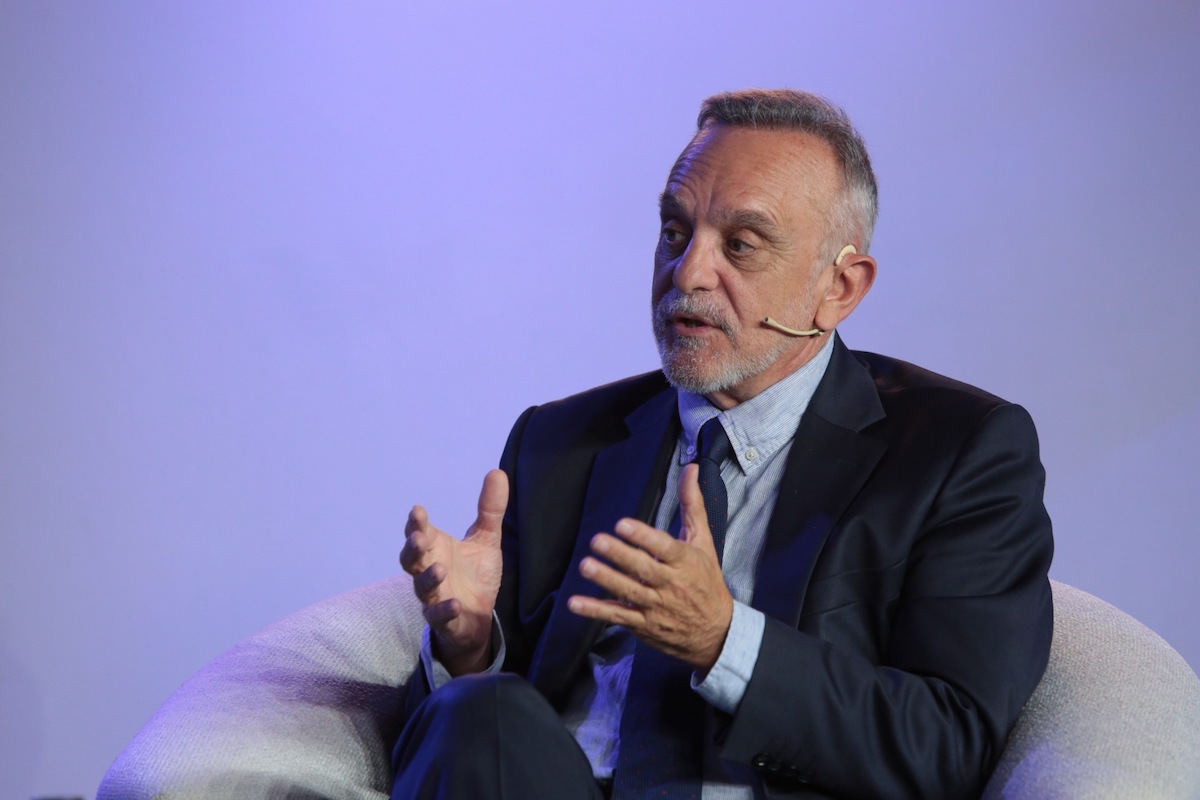
And, given these difficulties, why are Sant Joan de Déu and Alexion committed to research into rare diseases? “We are interested in it because of our DNA,” explains Del Castillo, who recalls that his hospital order was born five centuries ago with the purpose of healing and caring for vulnerable people in a humanistic way in order to move towards a more just society. “And what’s more vulnerable than a family of a child with a minority disease?”.
Alexion has also had an interest in rare diseases in its DNA since it was born three decades ago from the hands of a researcher and a doctor in Boston. After initially failing with its treatment, it became one of the few companies dedicated exclusively to researching this type of disease. “It makes a lot of sense to do research where there is no alternative, although it carries risk: we all have stories of failure” and difficulties in accessing treatments. “We are many laboratories that we are aware that there are 7,000 diseases to be treated.
Beleta maintains that Barcelona has “all the pieces in the chain: research, financing, hospitals, universities, investment, and both public and private organizations that help to move forward”.
All this is set in a context in which Barcelona has positioned itself in recent years as a clear European benchmark in innovation in the field of health. The city has developed a powerful healthcare innovation ecosystem, in which universities, research centers and multiple research centers play an important role and a lot of startups that are emerging in the Catalan capital and its surroundings. In fact, the emerging companies in the sector healthtech are the most numerous within the group of catalanstartups . In addition, Barcelona has several projects underway that will be key to the life sciences sector. These include the future Ciutadella del Coneixementthe CaixaResearch Institute and the new Clínicwhich is destined to become a science and health hub for metropolitan Barcelona.
